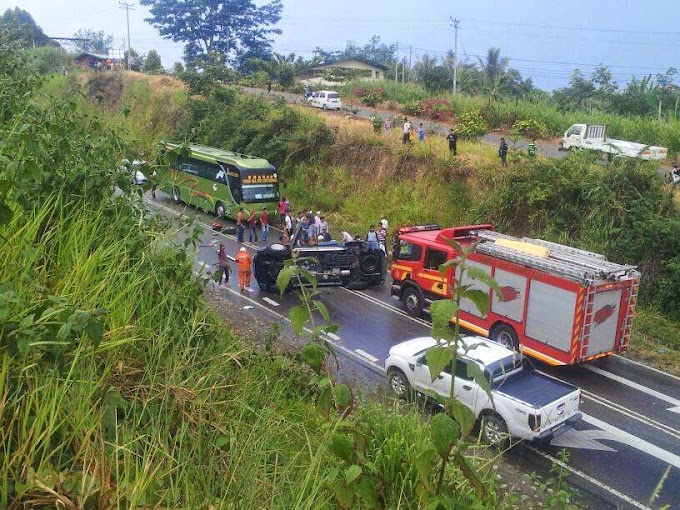Indonesia and Malaysia are reviewing their border agreement signed by both parties in 1970 and then revised in 2006, to further enhance trade cooperation between the two countries as mutual concerns over a possible world economic downturn have increased.
This step is being taken, following a projected slowdown in the United States, the European Union and Japan next year, according to the Trade Ministry's international trade cooperation director general Gusmardi Bustami.
Gusmardi said Friday the Indonesian and Malaysian governments have just concluded a two-day joint commission that began on Tuesday in Kuala Lumpur, to identify problems and barriers to improved trade and investment cooperation between the two countries.
"The Indonesian government is intensifying trade opportunities with neighboring countries, on the lines of what we're doing with Malaysia, promoting faster, better and more focused trade and investment," he added.
According to the Central Statistics Agency (BPS), the volume of bilateral trade between the two nations reached US$6.88 billion in the first eight months of this year, with a surplus of $1.4 billion in favor of Indonesia.
This eight-month record result represented a 60.7 percent increase from the $4.28 billion booked in the corresponding period last year, when there was a surplus of $1.48 billion for Indonesia.
In the meeting, the two governments agreed to look into the definition of border trade stipulated by the agreement in an effort to consolidate and even boost bilateral trade and investment, according to Gusmardi.
"We have so many borders with Malaysia and we actually haven't agreed yet on a comprehensive definition of border trade in the agreement because it only regulates land-border trade (so far)," he said.
"We need to also define sea borders with Malaysia," he added.
Indonesia borders with Malaysia on land on Kalimantan Island and by sea in the South China Sea and the Malacca straits.
Gusmardi said a better definition on border trade would help maintain the flow of goods by sea and land and help impede illegal trade.
"Illegal trade has been a major concern for both of us -Indonesia and Malaysia," he said.
"We need to intensify our efforts against illegal trade through our joint institution -- the Sosec Malindo Forum (Malaysia-Indonesia Social Economic Forum)."
To consolidate foreign direct investment in the respective countries, Gusmardi said the Malaysian government had asked for an acceleration of the deliberations by the Indonesian parliament on the ratification of the proposed agreement on double taxation which both governments signed in 2006.
He said that under the agreement, a Malaysian company operating in Indonesia would only be required to pay taxes to the Indonesian government, and vice versa.









